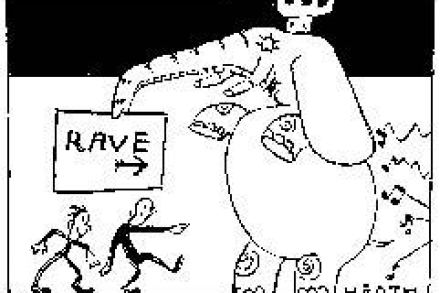Underneath the arches | 9 April 2011
The Elephant and Castle shopping centre is more of an oddity than an eyesore. It lies like a stricken container ship opposite the dignified columns of the Metropolitan Tabernacle and the sweep of porticos leading to Kennington on the other side of the gyratory system. It was to be demolished as part of a redevelopment plan, but the recession has given it a stay of execution. Retailers have stayed away, which has created an opportunity for Corsica Studios, an organisation that uses dilapidated buildings and dead urban space to host art exhibitions, live album launches and club nights. Corsica Studios adapted some former loading bays behind the shopping centre and













